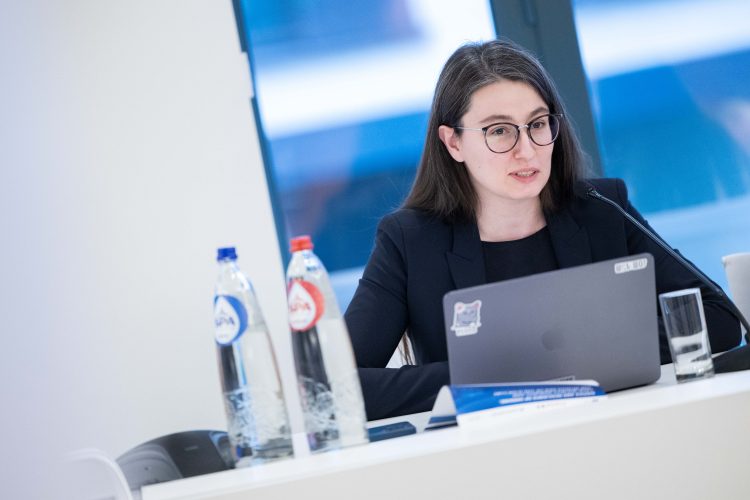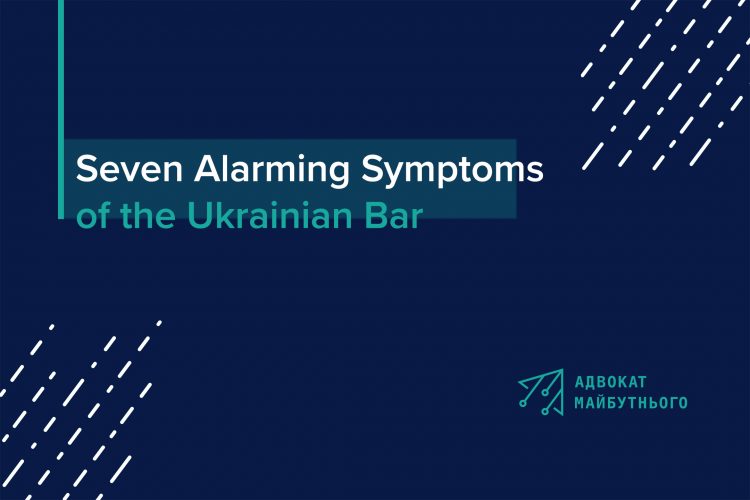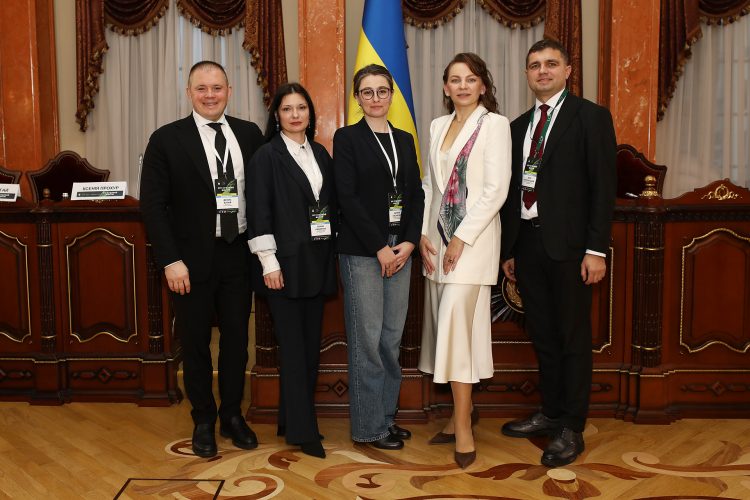
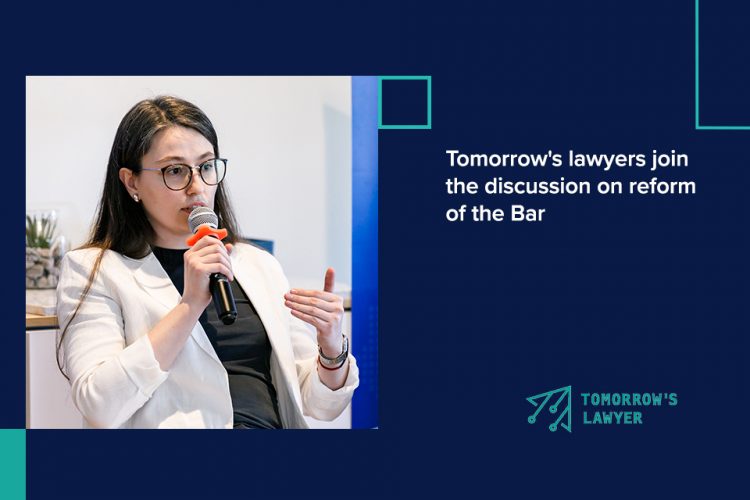
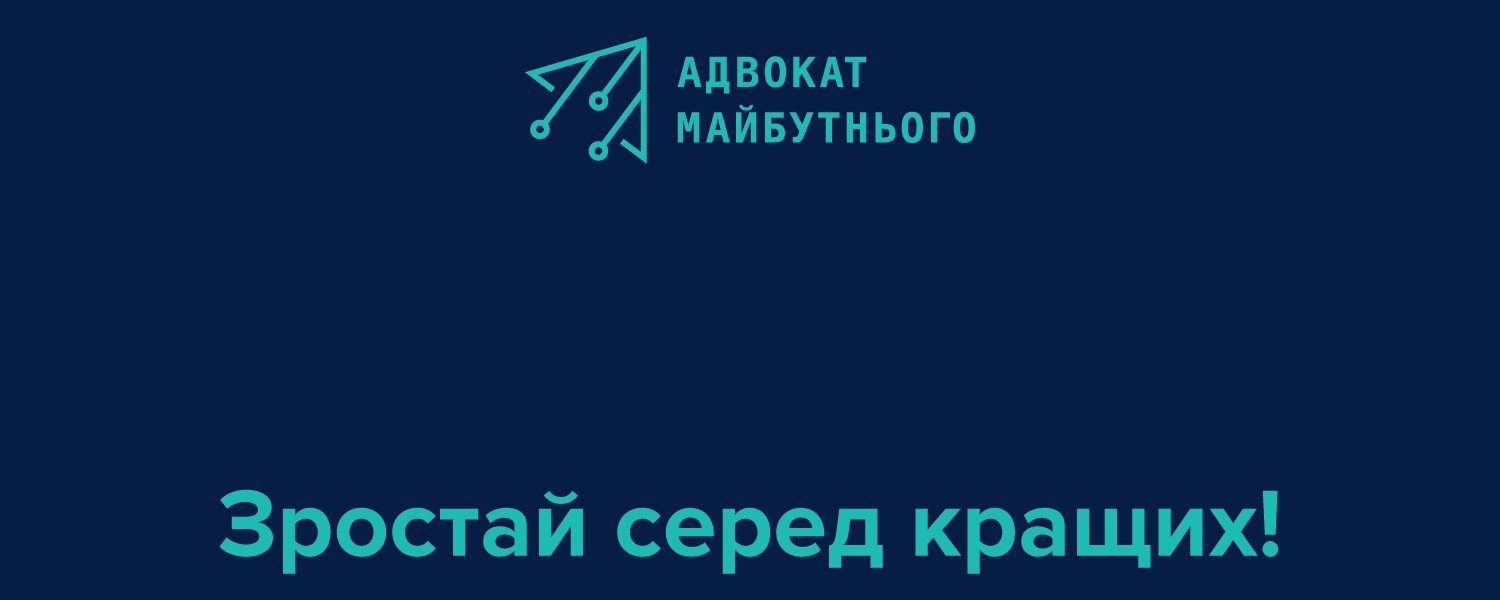
Tomorrow’s lawyer joins discussion on reform of the Bar
On 6 June, Director of Tomorrow`s Lawyer Daria Pysarenko attended a round table discussion on the reform of the Bar in Ukraine, organised by the EU Project Pravo-Justice. The event aimed to identify key challenges and opportunities for reform, develop practical recommendations, and strengthen dialogue between stakeholders on the future of the Bar in Ukraine.
Daria focused her speech on the independence of the Bar, its accountability and transparency of processes.
“The independence of the legal profession is a prerequisite. Currently, the bar has one of the highest levels of independence among all institutions in the justice system. After all, the independence of the legal profession is designed to guarantee the independence of lawyers in the proceedings. This is an axiom. At the same time, independence is not the opposite of transparency. On the contrary, independence implies self-regulation, and self-regulation implies accountability to lawyers themselves and openness to the society for which the Bar exists. Accountability is not a threat to independence. It is its form,” – Daria emphasised.
In addition to obvious weaknesses in the transparency of the bar system, such as the lack of regular bar association congresses, the lack of a public register of disciplinary commission decisions, the lack of independent audits and financial reports on the use of lawyers’ contributions and other payments for the past three years, and their insufficient transparency until 2022, Daria revealed problems of transparency for lawyers themselves in the election procedure for bar self-government bodies.
The key problems with the system for electing bar self-government bodies are the centralised allocation of delegates, which significantly complicates the process and affects the transparency of the procedure. There is also a lack of real competition in the electoral process, which deprives lawyers of the opportunity to influence the quality of the composition of self-government bodies. The democratic nature of the election procedure is also negatively affected by the open voting procedure for the election of members of bar self-government bodies, which creates risks of external influence and calls into question the electoral process. For example, the election of self-government bodies of judges and prosecutors is carried out by secret ballot in accordance with the law.
It should be recalled that the European Commission’s reports within the EU Enlargement Package 2024 and 2023refer to the need to establish a transparent system for the election of bar self-government bodies and to increase the transparency and accountability of the bar.
The Roadmap on the Rule of Law, recently adopted by Ukraine at the level of the Cabinet of Ministers, also contains a plan for reform of the Bar. In particular, the Roadmap refers to measures aimed at establishing clear and open competitive procedures for the election of senior positions in the bar self-government bodies and increasing the transparency and accountability of the bar self-government bodies.
The round table was also attended by national and foreign lawyers, representatives of self-government bodies, academics, MPs, government officials and representatives of civil society:
- Volodymyr Vatras — Head of the Subcommittee on the Organisation and Activities of the Bar and Legal Aid Bodies of the Ukrainian Parliament’s Committee on Legal Policy
- Asier Santillán Luzuriaga — Head of Section, EU Delegation to Ukraine
- Viktor Dubovyk — Director General of the Directorate for Legal Policy of the Office of the President of Ukraine
- Lidia Izovitova — President of the Ukrainian National Bar Association
- Oleksandr Oliynyk — Director of the Directorate for Justice and Criminal Justice of the Ministry of Justice of Ukraine
- Maja Cvitan Grubishin — Head Component of the EU Project ‘Law-Justice’
- Rytis Jakubauskas – Deputy Minister of Justice of Lithuania, international expert of the EU Law-Justice Project
- Rupert Wolf – former President of the Austrian Bar Association, former President of the Council of Bars and Law Societies of Europe (CCBE), national expert of the EU Law-Justice Project
- Marie-Aimée Peyron – Representative of the French National Bar Council
- Frédéric Teper – Member of the French National Bar Council
- Christophe Arroyo – Magistrate and Policy Officer at the French Ministry of Justice
- Other representatives of the legal profession and civil society



